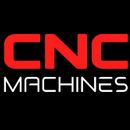Lead Generation for Manufacturers: The Key to Sustainable Growth and Success

Lead Generation for Manufacturers: The Key to Sustainable Growth and Success
In today's competitive manufacturing landscape, effective lead generation is crucial for business success. It not only helps manufacturers acquire new customers but also ensures that they maintain a steady pipeline of opportunities. However, generating leads is just the beginning. Processing accurate quotes for prospects is equally essential, as it directly impacts the chances of landing the job. This article delves into the importance of lead generation for manufacturers, the significance of accurate quoting, best practices for lead generation, and strategies for converting leads into customers.
Why Lead Generation is Vital for Manufacturers
1. Sustaining Growth
Manufacturing companies thrive on continuous growth and expansion. Effective lead generation strategies enable manufacturers to identify and engage potential customers, ensuring a consistent influx of new business opportunities. This growth is essential for maintaining profitability and staying ahead of competitors.
2. Understanding Market Demand
Lead generation helps manufacturers gain insights into market demand and customer preferences. By engaging with potential customers, manufacturers can identify trends, understand pain points, and tailor their offerings to meet specific needs.
3. Building Relationships
Lead generation is not just about acquiring new customers; it’s also about building lasting relationships. Establishing connections with prospects can lead to repeat business, referrals, and long-term partnerships, which are vital for sustained success in the manufacturing sector.
4. Enhanced Brand Awareness
Effective lead generation campaigns increase brand visibility and awareness. As manufacturers reach out to potential customers, they can establish themselves as industry leaders and trusted partners, enhancing their reputation and credibility in the market.
The Importance of Accurate Quoting for Prospects
1. Establishing Trust
Providing accurate quotes demonstrates professionalism and reliability. Prospects are more likely to trust manufacturers who take the time to deliver precise and detailed pricing information, leading to a positive impression of the brand.
2. Competitive Advantage
In a competitive market, accurate quoting can set manufacturers apart from their competitors. When prospects receive detailed and transparent quotes, they can make informed decisions, increasing the likelihood of choosing your services over others.
3. Reducing Miscommunication
Accurate quotes help minimize miscommunication regarding pricing, project scope, and timelines. Clear and detailed quotes ensure that both parties are on the same page, reducing the risk of misunderstandings that could lead to disputes or dissatisfaction later.
4. Optimizing Profit Margins
Understanding the true costs associated with manufacturing projects allows manufacturers to create quotes that ensure healthy profit margins. Accurate quoting helps prevent underpricing or overpricing, ultimately benefiting the bottom line.
Best Practices for Lead Generation in Manufacturing
1. Define Your Target Audience
Understanding your ideal customer is fundamental to effective lead generation. Identify the industries, company sizes, and roles that best align with your manufacturing capabilities. Create buyer personas to tailor your marketing efforts accordingly.
2. Leverage Digital Marketing
In today's digital age, a strong online presence is essential for lead generation. Invest in a user-friendly website optimized for search engines (SEO) to attract organic traffic. Utilize content marketing, social media, and email campaigns to engage potential customers and nurture leads.
3. Attend Industry Events and Trade Shows
Participating in industry events and trade shows provides an excellent opportunity for face-to-face networking. Engage with potential customers, showcase your products, and gather leads through follow-up interactions after the event.
4. Implement a CRM System
Utilizing a Customer Relationship Management (CRM) system can streamline lead generation efforts. A CRM allows you to track leads, manage communications, and analyze data to improve your lead generation strategies.
5. Offer Valuable Content
Providing valuable content, such as whitepapers, case studies, or webinars, can attract and educate potential leads. This positions your manufacturing business as a thought leader and encourages prospects to engage further.
6. Follow Up Promptly
Timely follow-ups are crucial for converting leads into customers. Develop a systematic follow-up process to ensure that you engage with prospects promptly, addressing any questions or concerns they may have.
Landing the Job: Converting Leads into Customers
1. Tailor Your Approach
When engaging with leads, personalize your communication to address their specific needs and challenges. Demonstrating that you understand their pain points will help build rapport and trust.
2. Provide Detailed Proposals
When it comes time to submit proposals, ensure they are detailed and accurate. Include information on pricing, timelines, and deliverables to give prospects a clear picture of what to expect.
3. Showcase Testimonials and Case Studies
Highlighting positive experiences from past customers can significantly influence a prospect’s decision. Showcase testimonials and case studies that demonstrate your capabilities and the value you provide.
4. Offer Incentives
Consider providing incentives, such as discounts or added services, to encourage prospects to choose your manufacturing services. These can help sway decision-making in your favor.
5. Build Long-Term Relationships
Once you land a job, focus on delivering exceptional service and maintaining open communication. Building long-term relationships with clients can lead to repeat business and referrals, enhancing your lead generation efforts in the future.
Conclusion
Lead generation is a vital aspect of sustaining and growing a successful manufacturing business. By understanding the importance of accurate quoting, implementing best practices, and focusing on converting leads into customers, manufacturers can enhance their market presence and drive profitability. In a competitive landscape, investing time and resources in effective lead generation strategies will yield long-term benefits and establish a robust pipeline for future growth.


